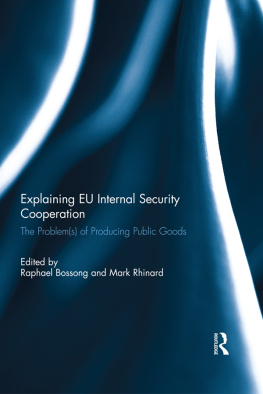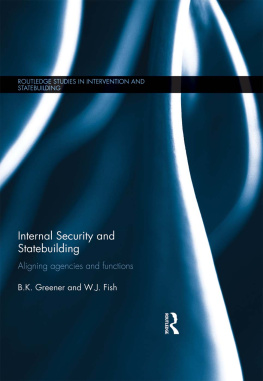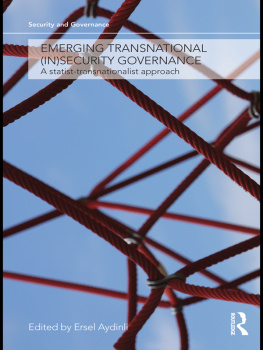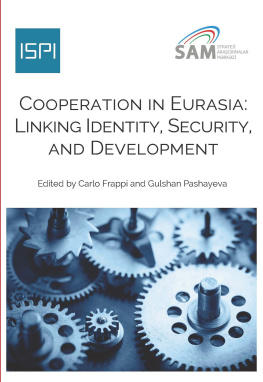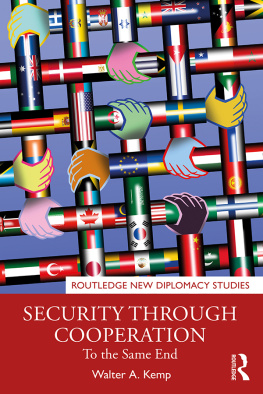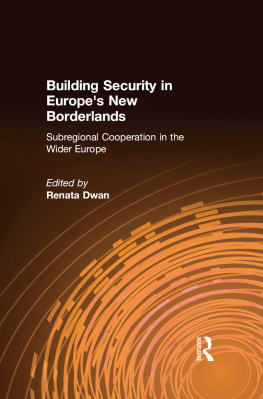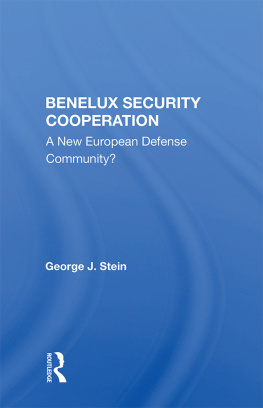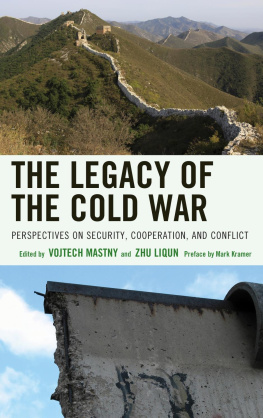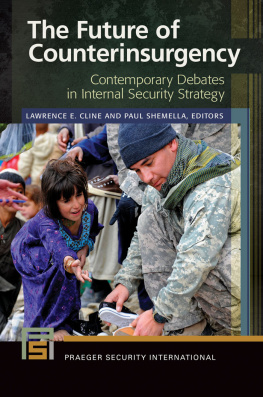Explaining EU Internal Security Cooperation
Internal security is often hailed as a rapidly expanding area of European integration, with a growing number of strategies, policies and framework agreements in recent years. Yet actual cooperation, when viewed closely, proceeds at a halting pace raising questions as to why cooperation appears so problematic. This book presents a novel, theoretically-informed way to understand internal security cooperation in Europe. The approach treats internal security as a public good requiring collective action amongst sovereign governments. All governments must contribute to the production of a public good; once produced, the public good benefits all governments. Fundamental obstacles to producing a public good thus arise, and can help explain the underlying difficulties facing European cooperation on internal security matters. The chapters in this book apply a public goods approach to different internal security issues, ranging from terrorism to border management, and from environmental security to natural disasters. Each study demonstrates how the various goals of internal security cooperation resemble different forms of public goods and thus present different kinds of obstacles to effective cooperation. This book fills a theoretical gap in the literature on European internal security cooperation with a proven approach increasingly used in other scholarly fields.
This book was originally published as a special issue of European Security.
Raphael Bossong is a Lecturer at the Europe University Viadrina, Germany. His research analyses EU security policy from the perspective of public administration and organizational theory, with an emphasis on the fight against terrorism and civilian crisis management.
Mark Rhinard is a Senior Research Fellow at the Swedish Institute of International Affairs and Associate Professor at Stockholm University, Sweden. He specialises in international cooperation on complex threats, with special attention placed on internal and external security cooperation in the European Union.
First published 2015
by Routledge
2 Park Square, Milton Park, Abingdon, Oxon, OX14 4RN, UK
and by Routledge
711 Third Avenue, New York, NY 10017, USA
Routledge is an imprint of the Taylor & Francis Group, an informa business
2015 Taylor & Francis
All rights reserved. No part of this book may be reprinted or reproduced or utilised in any form or by any electronic, mechanical, or other means, now known or hereafter invented, including photocopying and recording, or in any information storage or retrieval system, without permission in writing from the publishers.
Trademark notice: Product or corporate names may be trademarks or registered trademarks, and are used only for identification and explanation without intent to infringe.
British Library Cataloguing in Publication Data
A catalogue record for this book is available from the British Library
ISBN 13: 978-1-138-79325-5
Typeset in Times New Roman
by Taylor & Francis Books
Publishers Note
The publisher accepts responsibility for any inconsistencies that may have arisen during the conversion of this book from journal articles to book chapters, namely the possible inclusion of journal terminology.
Disclaimer
Every effort has been made to contact copyright holders for their permission to reprint material in this book. The publishers would be grateful to hear from any copyright holder who is not here acknowledged and will undertake to rectify any errors or omissions in future editions of this book.
Contents
Raphael Bossong and Mark Rhinard
Eiko Thielemann and Carolyn Armstrong
Raphael Bossong
Helmut P. Gaisbauer
James Sperling
Elke Krahmann
Mark Rhinard, Simon Hollis and Arjen Boin
The chapters in this book were originally published in European Security , volume 22, issue 2 (June 2013). When citing this material, please use the original page numbering for each article, as follows:
Chapter 1
European internal security as a public good
Raphael Bossong and Mark Rhinard
European Security , volume 22, issue 2 (June 2013) pp. 129147
Chapter 2
Understanding European asylum cooperation under the Schengen/Dublin system: a public goods framework
Eiko Thielemann and Carolyn Armstrong
European Security , volume 22, issue 2 (June 2013) pp. 148164
Chapter 3
Public good theory and the added value of the EUs anti-terrorism policy
Raphael Bossong
European Security , volume 22, issue 2 (June 2013) pp. 165184
Chapter 4
Evolving patterns of internal security cooperation: lessons from the Schengen and Prm laboratories
Helmut P. Gaisbauer
European Security , volume 22, issue 2 (June 2013) pp. 185201
Chapter 5
EU police and judicial cooperation before the Treaty of Lisbon: strengthening of the weakest link?
James Sperling
European Security , volume 22, issue 2 (June 2013) pp. 202229
Chapter 6
Green consumer markets in the fight against climate change
Elke Krahmann
European Security , volume 22, issue 2 (June 2013) pp. 230247
Chapter 7
Explaining civil protection cooperation in the EU: the contribution of public goods theory
Mark Rhinard, Simon Hollis and Arjen Boin
European Security , volume 22, issue 2 (June 2013) pp. 248269
Please direct any queries you may have about the citations to
Raphael Bossonga and Mark Rhinardb
a Institute for Peace Research and Security Policy, Hamburg, Germany
b Swedish Institute of International Affairs and Stockholm University, Stockholm, Sweden
This introduction argues for a new research agenda on European internal security cooperation from the perspective of public goods. We set out our case in three parts. First, we identify new empirical puzzles and demonstrate significant explanatory gaps in the existing internal security literature which public goods theory could help address. Second, we outline the building blocks of a public goods approach and provide an overview of its application, both existing and potentially, in various areas of regional security and European integration. Third, we present three complementary ways of using public goods theory to analyse internal security in the European Union, with the aim of spurring new research questions while accepting some limitations of this theoretical approach.
Security cooperation is increasingly concerned with unconventional, asymmetric, and transnational threats. It is now commonplace to hear that the end of the Cold War and the terrorist attacks of 11 September 2001, combined with the effects of globalisation and environmental degradation, herald a new era of vulnerability based on ever-increasing economic and socio-technical interconnections. In Europe, the European Union (EU) has moved to the forefront of attempts to address these vulnerabilities as cooperative initiatives on internal and transnational security proliferate. National leaders, for instance, are quick to signal their intentions to increase cooperation especially when prompted to respond to events like terrorist attacks, infrastructure failures, or refugee crises on a range of internal security issues. This has led to a raft of initiatives and successive treaty revisions expanding EU competences and created a situation where internal security-related agreements now make up a considerable share of overall EU outputs.

